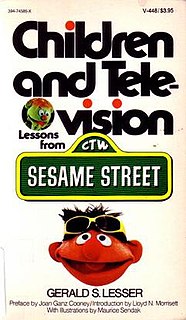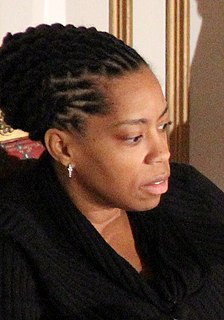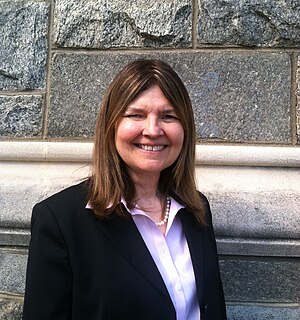
Sesame Street is an American educational children's television series that combines live-action, sketch comedy, animation and puppetry. It is produced by Sesame Workshop and was created by Joan Ganz Cooney and Lloyd Morrisett. It is known for its images communicated through the use of Jim Henson's Muppets, and includes short films, with humor and cultural references. It premiered on November 10, 1969, to positive reviews, some controversy, and high viewership. It has aired on the United States national public television provider PBS since its debut, with its first run moving to premium channel HBO on January 16, 2016, then its sister streaming service HBO Max in 2020. Sesame Street is one of the longest-running shows in the world.

Sesame Workshop (SW), originally known as the Children's Television Workshop (CTW), is an American nonprofit organization that has been responsible for the production of several educational children's programs—including its first and best-known, Sesame Street—that have been televised internationally. Television producer Joan Ganz Cooney and foundation executive Lloyd Morrisett developed the idea to form an organization to produce Sesame Street, a television series which would help children, especially those from low-income families, prepare for school. They spent two years, from 1966 to 1968, researching, developing, and raising money for the new series. Cooney was named as the Workshop's first executive director, which was termed "one of the most important television developments of the decade."

The preschool educational television program Sesame Street was first aired on public television stations on November 10, 1969, and reached its 52nd season in 2021. The history of Sesame Street has reflected changing attitudes to developmental psychology, early childhood education, and cultural diversity. Featuring Jim Henson's Muppets, animation, live shorts, humor and celebrity appearances, it was the first television program of its kind to base its content and production values on laboratory and formative research, and the first to include a curriculum "detailed or stated in terms of measurable outcomes". Initial responses to the show included adulatory reviews, some controversy and high ratings. By its 40th anniversary in 2009, Sesame Street was broadcast in over 120 countries, and 20 independent international versions had been produced. It has won eleven Grammys and over 150 Emmys in its history—more than any other children's show.

Sésamo, formerly titled Plaza Sésamo prior to 2016, is one of the first international co-productions of the American children's television program Sesame Street. Its first season premiered in Mexico in 1972, and the last season ended in 2018 during the holiday season and the 50th anniversary of Sesame Street, but the show returned in 2020 and was immediately a ratings hit. It also aired throughout Latin America, to a potential audience of 25 million children in 34 countries. Unlike some of the earliest co-productions, which consisted of dubbed versions of Sesame Street with local language voice-overs, Sésamo was a true co-production. Half of the show was adapted from the American show, and half was original material, created in Mexico by Mexican writers, performers, and producers. The first season consisted of 130 half-hour episodes. The Plaza Sèsamo development process was similar to that of the American show. Its goals were developed by local experts in television, child development, and early education during curriculum seminars in Caracas, Venezuela. Sésamo's goals emphasized problem solving and reasoning, and also included perception, symbolic representation, human diversity, and the child's environment. Other goals included community cooperation, family life, nutrition, health, safety, self-esteem, and expressing emotions. Early reading skills were taught through the whole language method. The show's budget for the first and second seasons was approximately US$1.6 million.

Joan Ganz Cooney is an American television writer and producer. She is one of the founders of Sesame Workshop, the organization famous for the creation of the children's television show Sesame Street, which was also co-created by her. Cooney grew up in Phoenix and earned a Bachelor of Arts in education from the University of Arizona in 1951. After working for the State Department in Washington, D.C., and as a journalist in Phoenix, she worked as a publicist for television and production companies in New York City. In 1961, she became interested in working for educational television, and became a documentary producer for New York's first educational TV station WNET. Many of the programs she produced won local Emmys.
Sherrie Rollins Westin is an American businesswoman. She is the President of Sesame Workshop, the nonprofit educational organization that produces the television series Sesame Street.
The Robinson family is a fictional family in the children's television series Sesame Street. The family consists of husband Gordon, a high school science teacher, and his wife Susan, a nurse. Later, the family expands to include their adopted son Miles, as well as Gordon's sister Olivia, his father Mr. Robinson, and a brother. As African Americans, the family was created as leads for the show, originally targeted to underprivileged inner city children. Even as human roles were slowly reduced over the years, their characters maintained a constant presence.
Michael Levine may refer to:
Sesame Street international co-productions are adaptations of the American educational children's television series Sesame Street but tailored to the countries in which they are produced. Shortly after the debut of Sesame Street in the United States in 1969 in television, television producers, teachers, and officials of several countries approached the show's producers and the executives of the Children's Television Workshop (CTW), renamed Sesame Workshop (SW) in 2000, about the possibility of airing international versions of Sesame Street. Creator Joan Ganz Cooney hired former CBS executive Michael Dann to field offers to produce versions of the show in other countries.

Street Gang: The Complete History of Sesame Street is a non-fiction book chronicling the history of the children's television program Sesame Street. Street Gang is journalist and writer Michael Davis's first book, published by Viking Press in 2008. On bookshelves in time for the show's 40th anniversary in 2009, the book developed out of a TV Guide article Davis wrote to commemorate the show's 35th anniversary in 2004. Davis spent five years researching and writing the book, and conducted hundreds of interviews with the show's creators, cast, and crew.

Lloyd N. Morrisett Jr. is an American experimental psychologist with a career in education, communications, and philanthropy. He is one of the founders of the Children's Television Workshop, the organization that created the children's television shows Sesame Street, which was also co-created by him, The Electric Company, and many others.

Children and Television: Lessons from Sesame Street (1974) is a non-fiction book written by Gerald S. Lesser, in which he describes the production of Sesame Street, and the formation and pedagogical philosophy of the Children's Television Workshop. Lesser was a professor at Harvard University, studying how social class and ethnicity interacted with school achievement and was one of the first academics in the US who researched how watching television affected children and their development. He was initially skeptical about the potential of using television as a teaching tool, but he was eventually named as the advisory board chairman of the Children's Television Workshop (CTW), the organization created to oversee the production and research of Sesame Street, and was the show's first educational director. Lesser wrote the book early in Sesame Street's history, to evaluate the show's effectiveness, to explain what its writers, researchers, and producers were attempting to do, and to respond to criticism of Sesame Street.

The Joan Ganz Cooney Center is an independent, non-profit, non-partisan research and innovation group founded by Sesame Workshop to advance children's literacy skills and foster innovation in children's learning through digital media.
Gerald Samuel Lesser was an American psychologist who served on the faculty of Harvard University from 1963 until his retirement in 1998. Lesser was one of the chief advisers to the Children's Television Workshop in the development and content of the educational programming included in the children's television program Sesame Street. At Harvard, he was chair of the university's Human Development Program for 20 years, which focused on cross-cultural studies of child rearing, and studied the effects of media on young children. In 1974, he wrote Children and Television: Lessons From Sesame Street, which chronicled how Sesame Street was developed and put on the air. Lesser developed many of the research methods the CTW used throughout its history and for other TV shows. In 1968, before the debut of Sesame Street, he led a series of content seminars, an important part of the "CTW Model", which incorporated educational pedagogy and research into TV scripts and was used to develop other educational programs and organizations all over the world. He died in 2010, at the age of eighty-four, and was survived by his wife, a daughter, a son, and a grandchild.
In 1969, the children's television show Sesame Street premiered on the National Educational Television network in the United States. Unlike earlier children's programming, the show's producers used research and over 1,000 studies and experiments to create the show and test its impact on its young viewers' learning. By the end of the program's first season, Children's Television Workshop (CTW), the organization founded to oversee Sesame Street production, had developed what came to be called "the CTW model": a system of planning, production, and evaluation that combined the expertise of researchers and early childhood educators with that of the program's writers, producers, and directors.

Nichole Pinkard is an American computer scientist and associate professor of learning sciences and faculty director of the Office of Community Education Partnerships (OCEP) in the School of Education and Social Policy at Northwestern. She is helping lead a collaboration with Apple and the Chicago Public School system to teach computer programming to teachers.

Lisa Guernsey is an American early education researcher, author, and former journalist. She is currently director of the Learning Technologies Project at New America, a non-profit, non-partisan research organization based in Washington, D.C. She is also deputy director of the organization's Education Policy Program.

Sandra L. Calvert is a developmental and child psychologist, whose scholarship illuminates the children's media area, including policy implications. Calvert is currently professor of psychology, and an affiliated faculty member at the McCourt School of Public Policy at Georgetown University. Calvert is also the co-founder and Director of the Children's Digital Media Center, a multi-university research initiative funded primarily by multiple grants from the National Science Foundation, as well as by private foundations. Calvert served as chair of the department of psychology at Georgetown University from 2006 to 2009.











